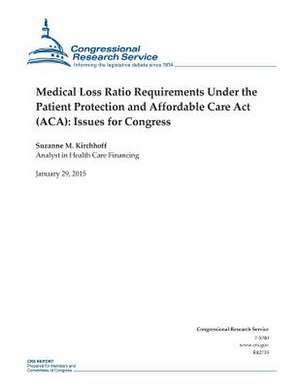Medical Loss Ratio Requirements Under the Patient Protection and Affordable Care ACT (ACA)
Autor Congressional Research Serviceen Limba Engleză Paperback
Preț: 120.53 lei
Nou
Puncte Express: 181
Preț estimativ în valută:
23.07€ • 23.73$ • 19.14£
23.07€ • 23.73$ • 19.14£
Carte disponibilă
Livrare economică 27 ianuarie-10 februarie
Preluare comenzi: 021 569.72.76
Specificații
ISBN-13: 9781507868003
ISBN-10: 1507868006
Pagini: 30
Dimensiuni: 216 x 279 x 2 mm
Greutate: 0.1 kg
Editura: CREATESPACE
ISBN-10: 1507868006
Pagini: 30
Dimensiuni: 216 x 279 x 2 mm
Greutate: 0.1 kg
Editura: CREATESPACE
